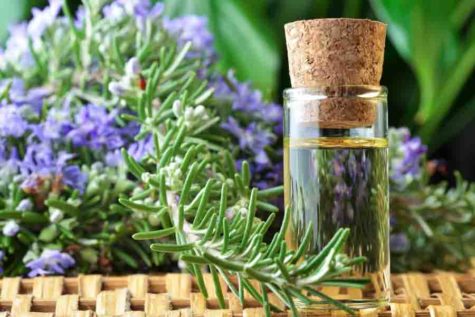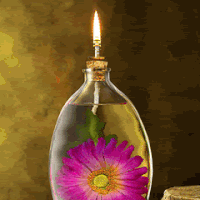Rosemary Essential Oil
Rosemary is both a physical and mental stimulant, which makes it a good oil to have in the morning bath, while also being excellent in the treatment of all muscular conditions, making it the perfect oil for a bath after a long tiring day.
- Application:
Diffuse, inhale, or apply topically on location. Add to food or soy / rice milk as a dietary supplement or flavoring.
- Fragrant Influence:
Helps overcome mental fatigue and improves mental clarity and focus.
- Safety Data:
Rosemary essential oil should not be used by those who suffer from hypertension, those who are pregnant and those who have epilepsy.
Tisserand and Young warn that Rosemary Oil is potentially neurotoxic, depending on the level of camphor present in the oil. They also warn not to use on or near the face of infants and children. They recommend dermal maximum s of 16.5% for Rosemary Camphor and 6.5% for Rosemary Verbenone.
Rosemary has become very popular as a medicinal plant, because it can be used for so many different conditions and symptoms. The oil is known to have rejuvenating properties so is often used in skin and hair care and the claimed memory boost means that it is a popular oil with students.
This antiseptic oil is used in the treatment of muscular spasms, arthritis, rheumatism, depression, fatigue, memory loss, migraine, headaches, coughs, flu, and diabetes, among other conditions.
It is also very useful in beauty treatments, being used in hair care and acne and cellulite remedies. For the sportsman, cook, and gardener, rosemary is invaluable.
Rosemary was part of the “Marselles Vinegar” or “Four Thieves Vinegar” used by grave-robbing bandits to protect themselves during the 15th century plague.
The name of the oil is derived from the Latin words for dew of the sea (ros + marinus). According to folklore history, rosemary originally had white flowers; however, they turned red after the Virgin Mary laid her cloak on the bush.
Since the time of ancient Greece (about 1000 BC), rosemary was burnt as incense. Later cultures believed that it warded off devils, a practice that eventually became adopted by the sick who then burned rosemary to protect against infection. Until recently, French hospitals used rosemary to disinfect the air.
Variations
Several chemotypes of R. officinalis have been defined, depending on where the plant is grown and what the local conditions are. The main three are as follows:
- Camphor-Borneol
- Cineole
- Verbenone
The camphor-borneol variety is considered the best stimulant whereas the verbenone is considered the most gentle and often used in topical preparations. One of the “Oils of Protection”, pleasant, warming and mildly sweet rosemary verbenone is a softer version of the more common and pungent cineole variety. Rosemary Cineole is sometimes preferred for use in respiratory and circulatory issues.
Information collected from various sources





Leave a Reply